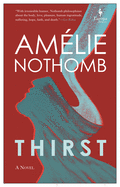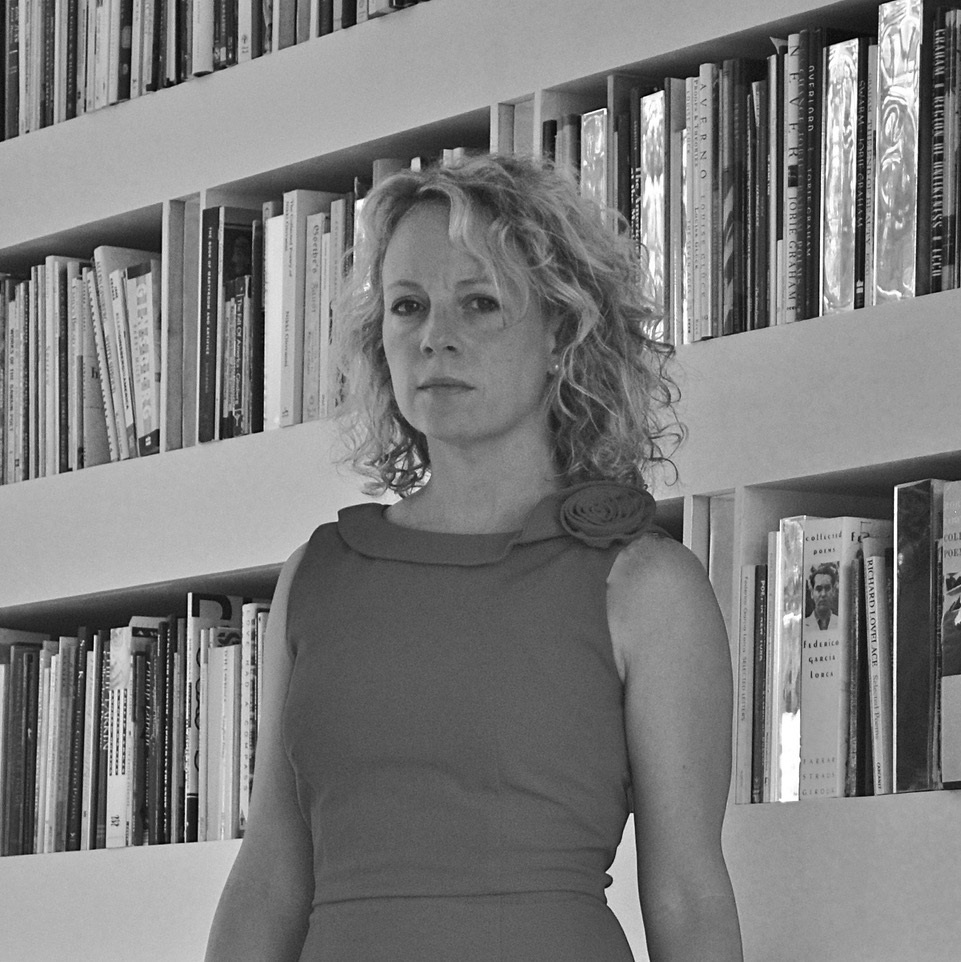 Jules Gibbs is the author of the poetry collections Snakes & Babies (2021) and Bliss Crisis (2012), both from the Sheep Meadow Press. Her writing has appeared in many journals and anthologies, and she serves as poetry editor for the Progressive and for Corresponding Voices, a bilingual magazine of cross-cultural and intersectional poetics based at Punto de Contacto Gallery, where she also curates the Cruel April reading series. She has won awards from the Dorothy Sargent Rosenberg Foundation in Poetry, and was selected by the poet Kim Addonizio for the Best New Poets anthology. Gibbs has taught literature and creative writing at Syracuse University since 2010.
Jules Gibbs is the author of the poetry collections Snakes & Babies (2021) and Bliss Crisis (2012), both from the Sheep Meadow Press. Her writing has appeared in many journals and anthologies, and she serves as poetry editor for the Progressive and for Corresponding Voices, a bilingual magazine of cross-cultural and intersectional poetics based at Punto de Contacto Gallery, where she also curates the Cruel April reading series. She has won awards from the Dorothy Sargent Rosenberg Foundation in Poetry, and was selected by the poet Kim Addonizio for the Best New Poets anthology. Gibbs has taught literature and creative writing at Syracuse University since 2010.
On your nightstand now:
Having and Being Had by Eula Biss, a collection of essays about our weird, conflicted lives under late-stage capitalism, but so much better than any description. Biss said she didn't know what she was writing, exactly, as she was writing it--were they prose poems? essays?--but it hardly matters. She can propel you (thrillingly) from the quotidian to the cosmic in the turn of one finely crafted sentence. I read her as if to study such economy of language--how does she take her readers so far, so fast?--but in truth, I read her for sheer enjoyment.
Also on my nightstand is Black Hole Survival Guide by Janna Levin. The confirmation that black holes even exist is a relatively new one, and to read about them is mind-bending. I love everything about black holes, even though I understand almost none of it. I think it's oddly fortifying to read about things that exist outside the human scale--in the context of black holes, everything that's happening in our tiny existence is laughably insignificant; this makes me--paradoxically--feel more invested in life and in the preservation of our lives on this miraculous planet, but without the solipsism.
Favorite book when you were a child:
I loved Scottish author Kenneth Grahame's 1908 novel, The Wind in the Willows, probably because I spent my childhood in the woods, talking to myself and to trees and to animals, inventing stories. My mother read it to me at bedtime, and it's still one of the most beautiful, comforting feelings I can conjure. Also, when I was very small, I loved The Bed Book, poems for kids by Sylvia Plath, which... who even knew Sylvia Plath wrote a children's book?
Your top five authors:
Joy Williams. Emily Dickinson. James Baldwin. Toni Morrison. Anne Carson. This question isn't really fair; impossible to name just five!
Book you've faked reading:
I am not sure I ever faked reading a book, but I saw a guy on a beach in Sicily fake-reading once, as a way, I guess, to look smart and sexy and pick up women--is this the true purpose of fake reading? I'll have to give it a try. I have mis-read or failed to comprehend several books in my life, most notably Ulysses. My inability to read the book bugged me so much that I audited a course on Ulysses at the University of Wisconsin-Madison, taught by a Joyce scholar.
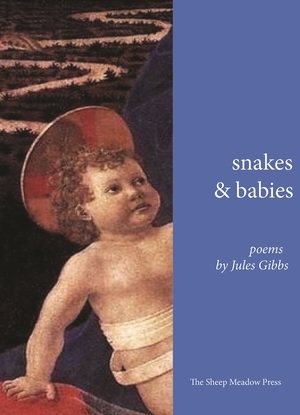 Book you're an evangelist for:
Book you're an evangelist for:
I'd go door-to-door evangelizing for Toni Morrison's novels, but especially Sula; it's short in form but vast in mind, one of those works that keeps unfolding with each new reading, perpetually shifting and revealing itself. It's lush and poetic, marvelously crafted, wildly and richly imagined, and contains so many complex and difficult and necessary truths about race--but also about the many forms that love takes, and about the human capacity to heal ourselves and each other.
Book you've bought for the cover:
On the Nature of Things by the Roman poet Lucretius, a book I purchased around age 18, in a used bookstore in Cambridge, Mass. I love the weird cover, which has a circle with a kind of stylized corona (it actually looks like some depictions of the coronavirus) or a dandelion gone to seed balancing on top of an orange triangle and a white square. It was a Harvard student's castoff, and I figured it must have all the answers to life in it. And it kind of does.
Book you hid from your parents:
The "S" volume of the Encyclopedia Britannica. Also, some trashy romance novel I was allowed to purchase at a gas station when we were on a long road trip, moving to Kentucky. I earmarked the naughty bits and hid it under the bed.
Book that changed your life:
Speak, Memory by Vladimir Nabokov is a book I return to often to reinvigorate my own relationship to language, and to remind myself that memory is at least 98% invention--and it's the invention part that matters most.
Favorite line from a book:
In Speak, Memory, Nabokov is looking at a butterfly under a microscope, wondering at its "translucent miniatures, pocket wonderlands, neat little worlds of hushed luminous hues," and muses: "There is, it would seem, in the dimensional scale of the world a kind of delicate meeting place between imagination and knowledge, a point arrived at by diminishing large things and enlarging small ones, that is intrinsically artistic." If that "delicate meeting place between imagination and knowledge" doesn't offer one of the best descriptions of poetry, I don't know what does.
Five books you'll never part with:
Another impossible question! I would never part with any book, but here are five, off the top of my head, among thousands:
Ralph Ellison's Invisible Man
Pilgrim at Tinker Creek by Annie Dillard
The Complete Poems of Emily Dickinson
Jesus' Son, Denis Johnson
James Welch, Winter in the Blood
Book you most want to read again for the first time:
Crime and Punishment, Dostoyevsky--I read it on the crowded subway every day, commuting to work in Boston. It messed with my head in the best ways, but I'm not sure I can ever get the firstness back, that feeling of being trapped in Raskolnikov's madness, the feeling of another mind usurping or occupying my own.









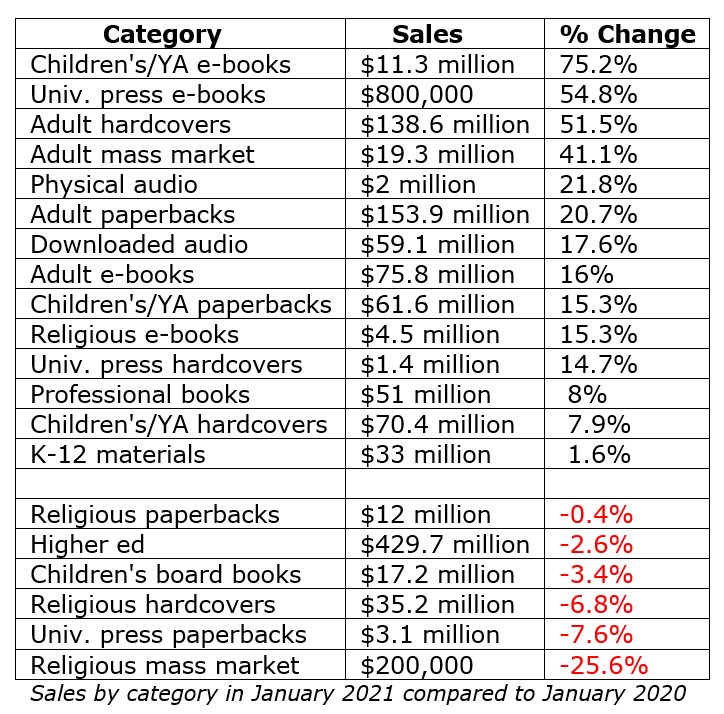

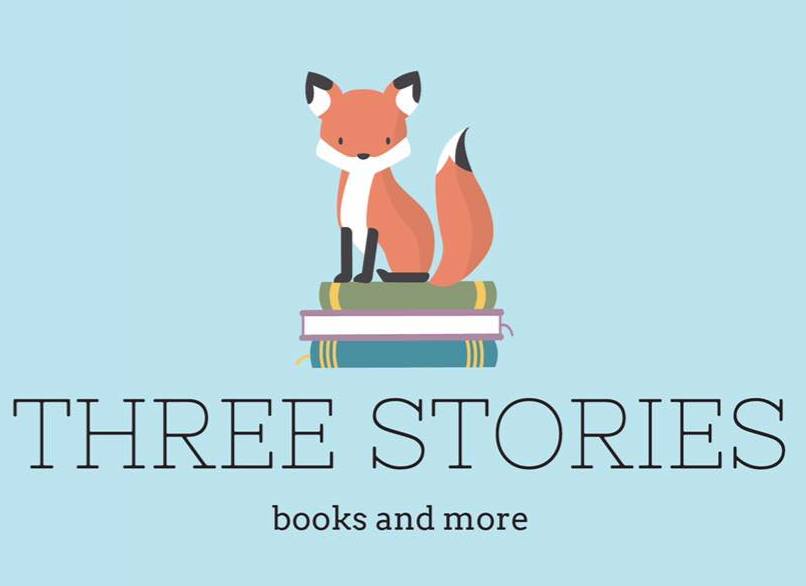 Three Stories Books
Three Stories Books

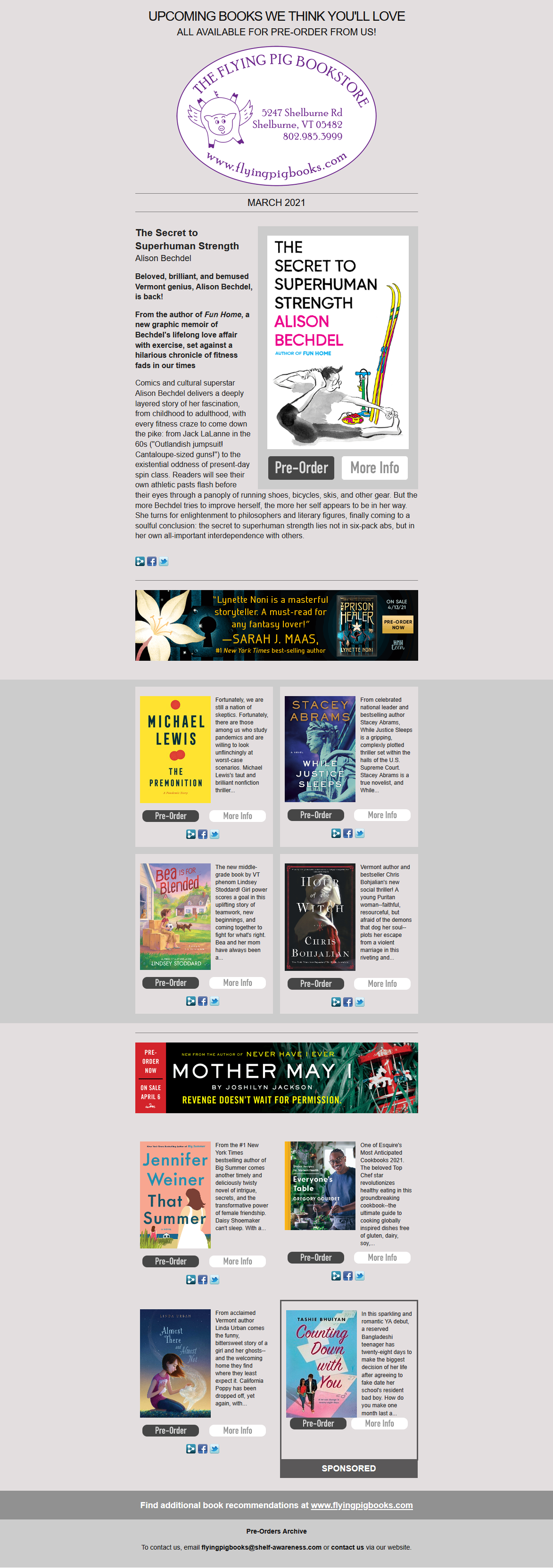 On Wednesday, Shelf Awareness sent our monthly pre-order e-blast to three-quarters of a million of the country's best book readers. The e-blast went to 750,327 customers of 169 participating independent bookstores.
On Wednesday, Shelf Awareness sent our monthly pre-order e-blast to three-quarters of a million of the country's best book readers. The e-blast went to 750,327 customers of 169 participating independent bookstores.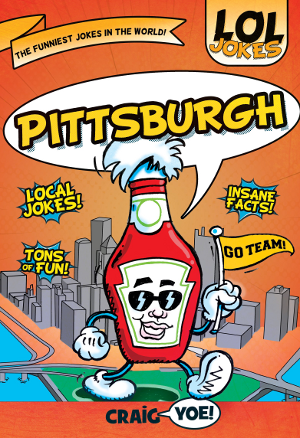 Later this month Arcadia Publishing will launch a series of locally themed, kid-friendly joke books called LOL Jokes. It is the second series from the Arcadia Children's Books imprint and is being written by Craig Yoe, a cartoonist and the former creative director for the Muppets, Nickelodeon and Disney.
Later this month Arcadia Publishing will launch a series of locally themed, kid-friendly joke books called LOL Jokes. It is the second series from the Arcadia Children's Books imprint and is being written by Craig Yoe, a cartoonist and the former creative director for the Muppets, Nickelodeon and Disney.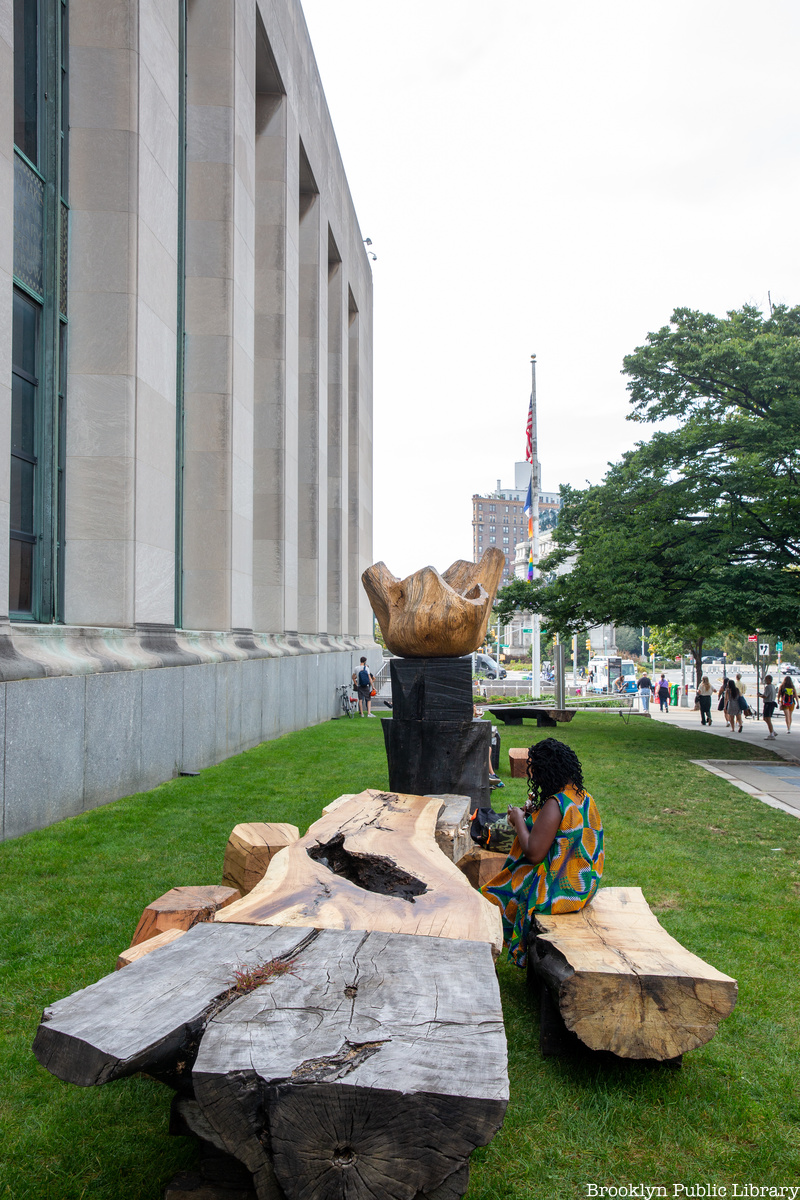 The
The 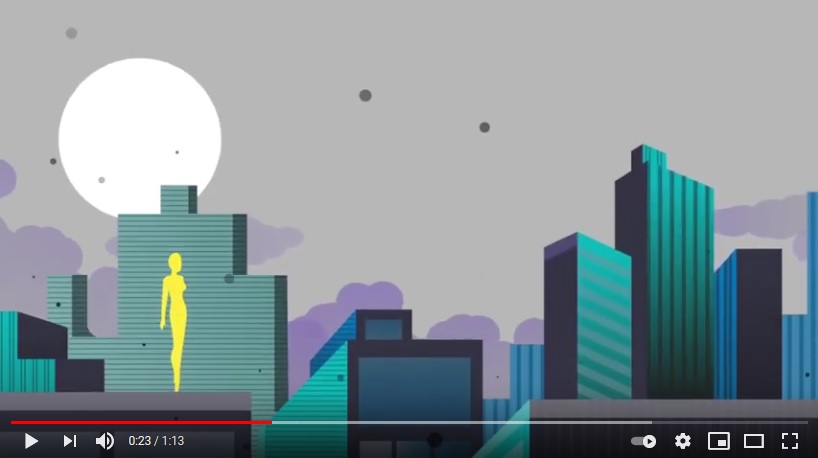 The High-Rise Diver
The High-Rise Diver
 Book you're an evangelist for:
Book you're an evangelist for: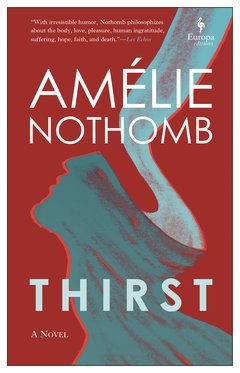 To portray Jesus Christ in fiction is not new--some would agree he was always a novel creation. From Nikos Kazantzakis's classic The Last Temptation of Christ to the ongoing bestselling manga series Saint Young Men, Jesus moves copies. Prolific writer Amélie Nothomb (
To portray Jesus Christ in fiction is not new--some would agree he was always a novel creation. From Nikos Kazantzakis's classic The Last Temptation of Christ to the ongoing bestselling manga series Saint Young Men, Jesus moves copies. Prolific writer Amélie Nothomb (